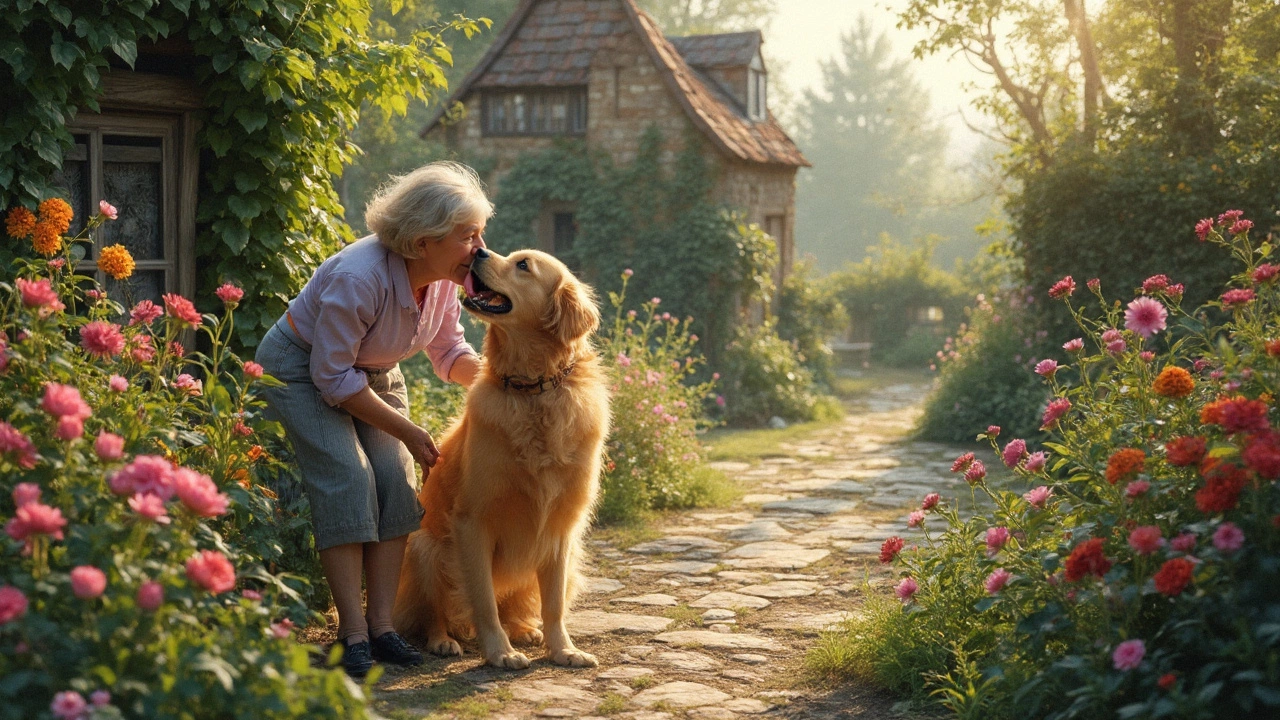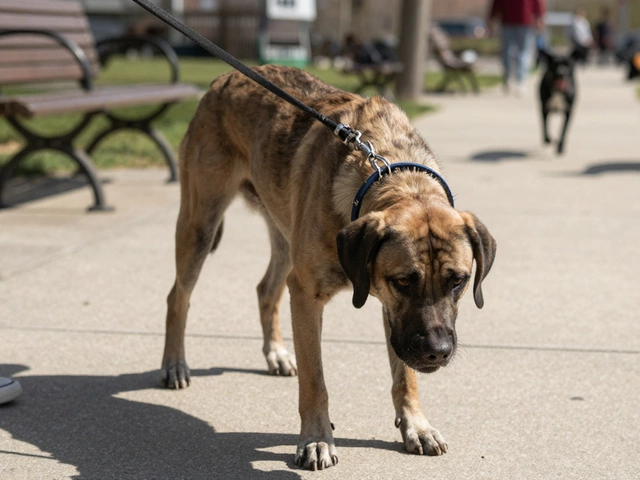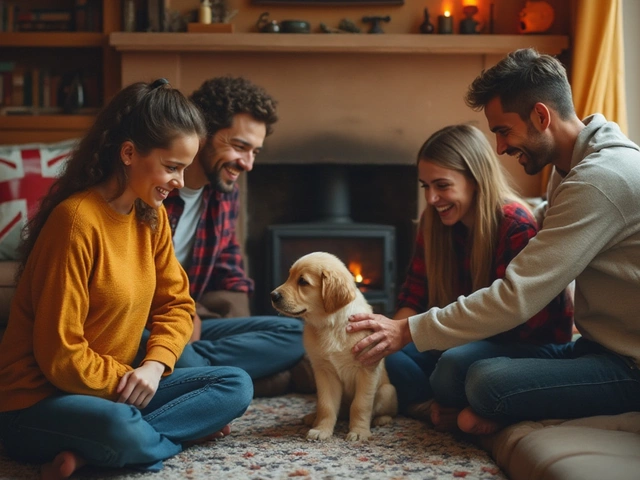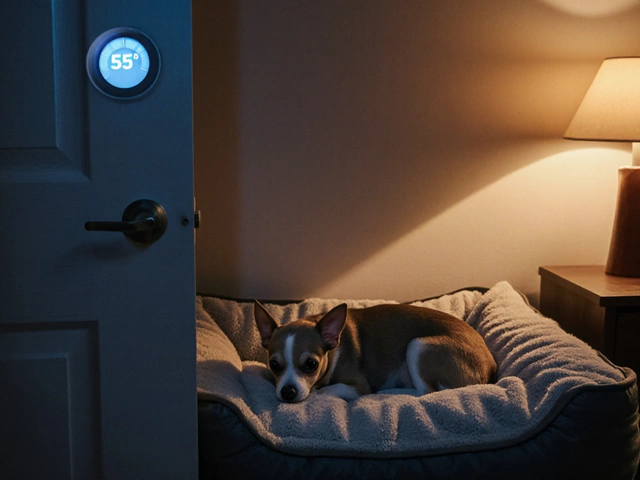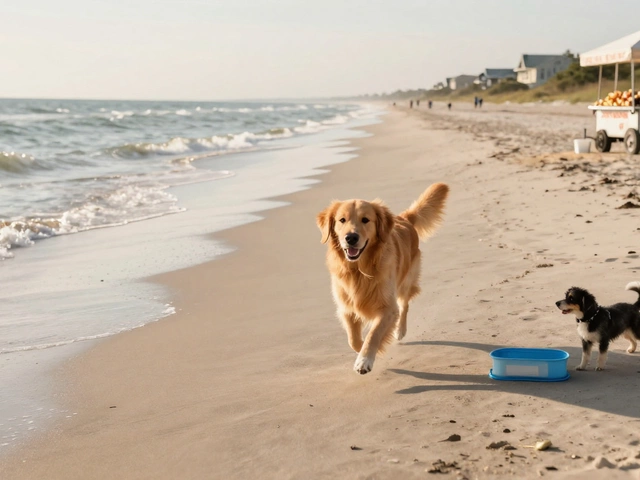If you've ever had a dog, you know they love to give a good lick. It's like their way of greeting you, showing some love, or maybe even telling you something's up. But have you ever stopped to think about why dogs lick you? Besides being an adorable quirk, licking can actually be a window into your dog's health and emotions.
One of the main reasons dogs lick is to communicate. Imagine if you couldn't speak? You'd have to get creative, just like our furry friends. Licking can mean anything from 'I'm hungry' to 'I'm stressed out.' Speaking of stress, in some cases, a dog who licks a lot might be trying to soothe themselves because they feel anxious or bored.
But it's not all about feelings. Licking also plays a functional role in canine behavior. Back in the wild days, dogs used licking for grooming, a way to keep wounds clean from infections. This behavior has stayed with domestic dogs, which can be handy when you want to ensure their cuts and scrapes don't get infected.
- Understanding Why Dogs Lick
- Health Implications of Licking
- Licking and Emotional Well-being
- Tips to Manage Excessive Licking
Understanding Why Dogs Lick
Ever wonder why your dog can't keep their tongue to themselves? It's not just random behavior. Understanding why dogs lick can give clues to their world.
First off, licking is a natural instinct. From puppyhood, dogs learn the behavior from their mothers, who lick them for grooming and bonding purposes. As they grow, dogs translate this behavior to humans to show affection and strengthen bonds.
Beyond affection, dogs often lick as a way of exploring. Just like toddlers put everything in their mouths, dogs experience their environment through taste. When they lick you, it's their way of saying they're interested and curious about you.
In some cases, dog licking hints at underlying health issues. For example, excessive licking could be a sign of allergies or digestive problems. If you notice unusual licking patterns, a trip to the vet might be wise.
The licking behavior extends to pack dynamics too. In the wild, dogs lick higher-rank members to appease them, which might explain why your pup licks you after a scolding – they're looking to make peace!
- Grooming: Cleaning themselves or their pack.
- Communication: Showing submission or affection.
- Exploration: Tasting the world around them.
To sum it up, understanding the reasons behind why dogs lick can help you cater better to their needs, ranging from health checks to emotional support.
Health Implications of Licking
While licking might seem harmless or even cute, it can sometimes point to underlying health issues. So, it's worth keeping an eye on your dog's licking behaviors. One key aspect to consider is whether your pup is licking due to allergens. Dogs can be allergic to anything from pollen to certain foods, and this often results in excessive licking, especially on their paws.
Another thing to watch for is dog health problems that can manifest through licking. If your dog is constantly licking a specific spot, it might be due to pain or irritation there. This could be indicative of problems like hotspots, arthritis, or even growths. It’s always a good idea to check these spots and consult a vet if anything looks unusual.
Gastrointestinal issues can also lead to licking. A dog that feels nauseous might try licking surfaces or themselves to soothe the discomfort. Do you notice your dog licking the air after they eat? That might be their way of saying, 'My tummy doesn't feel right.'
Though not all licking behavior is cause for alarm, it’s crucial to differentiate between normal licking and something that could require a vet's attention. Here are some pointers for when it's time to seek professional advice:
- Your dog seems obsessed with licking a particular spot.
- They have itchy, red skin, or hair loss in certain areas.
- They display symptoms like vomiting or diarrhea alongside licking.
Sometimes, providing your pup with the right dog supplements can help mitigate these health issues. Supplements that promote skin health, like omega-3 fatty acids, can occasionally reduce itchiness and the subsequent licking.
| Symptom | Possible Cause |
|---|---|
| Excessive Paw Licking | Allergy |
| Licking Air | Gastrointestinal Distress |
| Licking Same Spot | Pain or Irritation |
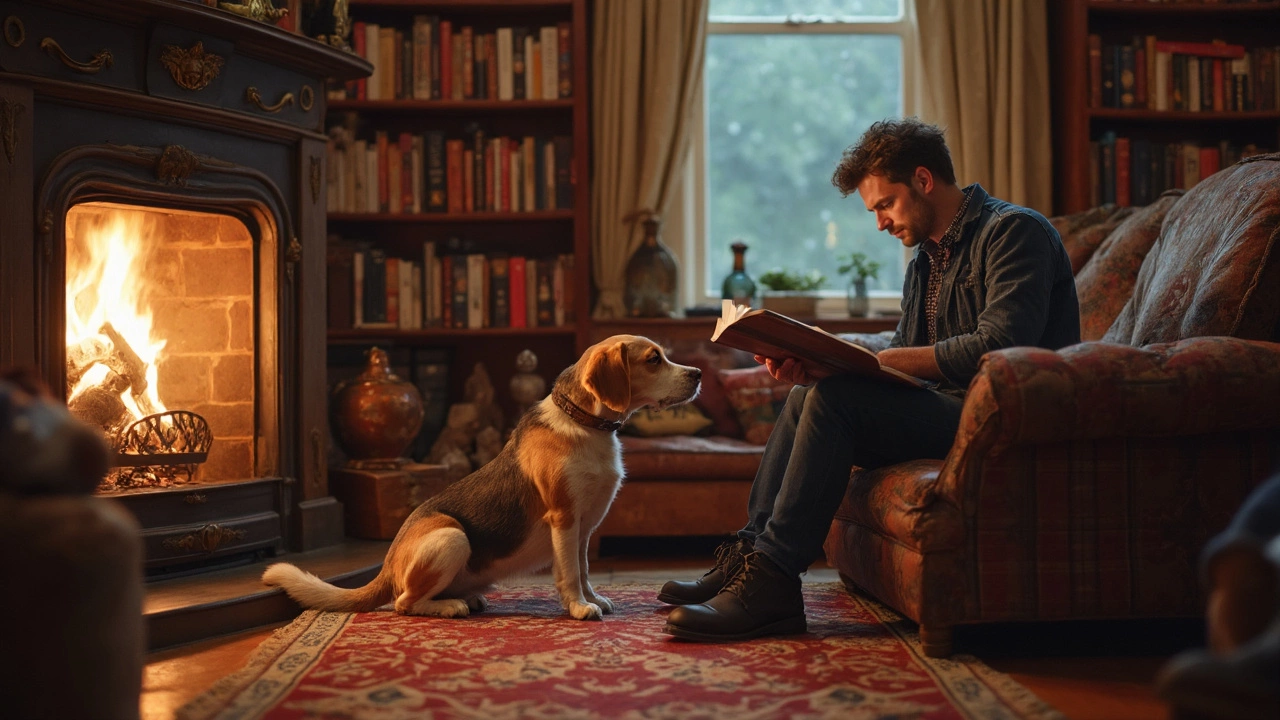
Licking and Emotional Well-being
Your dog's licking habit might be doing more than just keeping your face slobbery; it could also be a serious clue about their emotional state. Dogs can't sit us down and tell us how they're feeling (imagine the therapy bills!), so they use behaviors like licking to get their message across. For many dogs, licking acts like a big, furry stress ball, helping them to calm down when they're feeling anxious.
Imagine you had a rough day at work and just wanted to unwind. Dogs get that way too, and licking can be their version of binge-watching their favorite show. Sometimes, it's a coping mechanism for when they're feeling overwhelmed or even when they're just plain bored. Knowing this can give you a big hint on when you might need to step in and provide some extra playtime or a soothing environment.
It's not all about stress, though. Licking can express joy and contentment as well. When your dog licks you the moment you walk through the door, it's like they're shouting, "You're finally home!" It's a huge component of the bond between you two. Dogs that lick often might just be firing off all sorts of happy vibes.
Experts believe that licking releases endorphins in dogs, providing a sense of comfort and pleasure. If your furry buddy is licking too much, though, it might not just be about their emotional well-being. That's where you, as their human, come into play.
By understanding their licking habits, you can better address what your dog needs. It could mean something simple like petting them after a long day or supplying some new chew toys to keep their mind busy if they're bored. Making sure your dog is emotionally healthy can also keep their physical health in check.
Tips to Manage Excessive Licking
So, your pup is turning into a licking machine, and you're a bit worried. It can be cute at first, but too much licking might be a sign that something's up with your furry buddy. Let's chat about how you can get a handle on this.
First things first, check in on your dog's overall health. Dog health can play a big role in behavior. If the licking is a new thing, or if they're going at it like there's no tomorrow, a trip to the vet might be in order. Sometimes, there might be an underlying issue, like allergies or even digestive problems.
Figure out if there's a pattern to the licking. Is he licking when you're about to leave the house? He might be dealing with separation anxiety. Consider giving him a distraction, like a puzzle toy or a treat-stuffed Kong. It can help take his mind off your absence and provide a healthy outlet for his licking habit.
Diet can be another biggie. Making sure your pup has a balanced diet with proper dog health supplements can do wonders. Omega-3 fatty acids, for instance, are known to help with skin health, reducing irritation that leads to licking.
Engage them in more physical activity. A tired dog is a happy dog. Regular walks and playtime can help reduce anxiety and boredom, which are prime motivators for excessive licking.
- Routine vet check to rule out health issues
- Identify and address anxiety with toys or other distractions
- Ensure a balanced diet with necessary nutrients
- Increase physical activities to alleviate boredom
Sometimes, a little bit of training helps. If your dog is licking to get your attention, make sure not to reinforce the behavior by giving in. Instead, reward him when he stops. Positive reinforcement can turn the tables around and curb that habit.
| Potential Cause | Suggested Solution |
|---|---|
| Anxiety | Toy distractions, more playtime |
| Dietary Deficiency | Add necessary supplements |
| Lack of Activity | Increase walks and exercise |
Remember, understanding why your dog is a licking machine is the first step to managing it. You're in it together, and with a few adjustments, your pal will likely be calmer and content. Whatever the reason, addressing it head-on will help your pet live a happier, healthier life.

